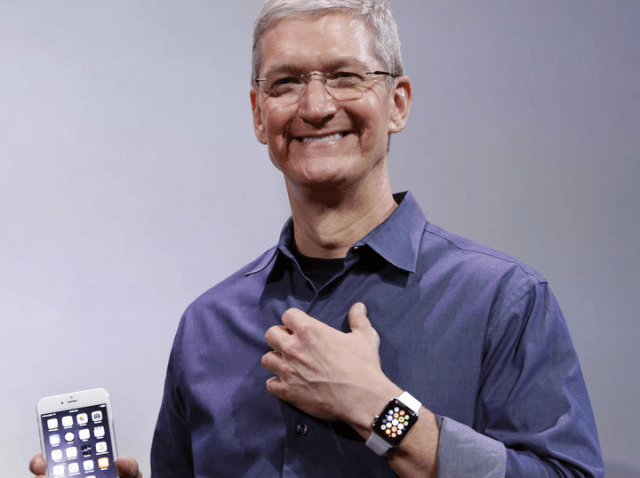As 200 shareholders cheered Apple CEO Tim Cook’s battle with the FBI for a “backdoor” into the iPhone, but the real battle is Apple’s attempt to save its lucrative “walled garden.”
It is Breitbart News’ understanding that there are about 7,000 requests by law enforcement for Apple to open iPhones that run on iOS8 and iOS9. Backdoor access apps for older versions of iPhone iOS are available for download on the Internet for users that want to install apps that are not approved by the Apple Store.
There are a significant number of regulations in effect worldwide that relate to protection of private and sensitive “data at transit.” Former CIA employee and current fugitive Edward Snowden created a furor in 2013 over disclosures that the NSA was clandestinely using “PRISM” and other software hacking tools to capture all Apple, Microsoft, Google and Facebook content “data in transit.”
Despite embarrassment for the Obama administration, not much has changed over NSA bulk “data in transit” collection. As Snowden’s revelations demonstrated, Silicon Valley tech companies have helped facilitate “data in transit” surveillance programs because Silicon Valley companies are receiving lucrative payments from the NSA.
But in the current controversy with the FBI, Apple is trying to protect “data at rest.” The issue is financially important because Apple uniquely makes its users stay in a “walled garden,” where everything supposedly works together.
But the biggest thing that “works” is Apple forcing users to use Safari alone to surf and shop on the Internet, and Apple charging 30 percent for subscription to apps sold on the Apple Store.
Apple has relentlessly marketed that its devices and the software are more safe and secure than the competition. But last September’s high-profile celebrity iCloud hack exposed naked and semi-naked photos and videos from more than 100 A-listers’ Apple accounts–including Oscar-winning actress Jennifer Lawrence, singer Rihanna, swimsuit model Kate Upton, and TV star Kim Kardashian. While some of the celebrities continue to claim the hacked phots were frauds, many have now admitted they were authentic.
The hackers apparently took advantage of a security flaw in the iCloud online backup service for Apple. Many online services lock someone out after several unsuccessful attempts to log in, but not Apple’s “Find My iPhone” app and iCloud. With unlimited guesses, known as a brute force attack, a computer program can generate and test thousands of potential passwords until an account is hacked and entered.
Just weeks later, hackers inserted a counterfeit version of Xcode into the Apple’s app toolset for Chinese developers. The malware affected hugely popular apps, including WeChat, which eventually had to be pulled from the App Store. Apple failed to detect XcodeGhost and to stop the malware from entering its “walled garden,” and gaining access to an untold number of customers’ iOS devices.
John Gunn, vice president of communications at Vasco Data Security, told CIO Magazine that Apple is a victim of its own perceived success. “Apple’s security strategy is so well-engineered that its biggest danger may be the false sense of security that it gives developers and the massive number of iPhone users.”
Beyond libertarian kudos for standing up to protect its users’ personal privacy, Apple has no cash incentives, as it does do for “data at transit”, for giving the FBI a backdoor key for “data at rest.”
It is unknown just how much cooperation Apple provided law enforcement in the past to access iPhones under a valid subpoena. But Apple’s “walled garden” being breached last fall undermined the brand’s perceived superiority among users.
With the expiration of the 5 p.m. West Coast deadline on Feb. 26 to comply with the federal order to write a backdoor for the FBI to use, Apple’s CEO could be thrown in jail.
More likely, the judge will sanction Apple and allow it time to appeal to a higher court.

COMMENTS
Please let us know if you're having issues with commenting.